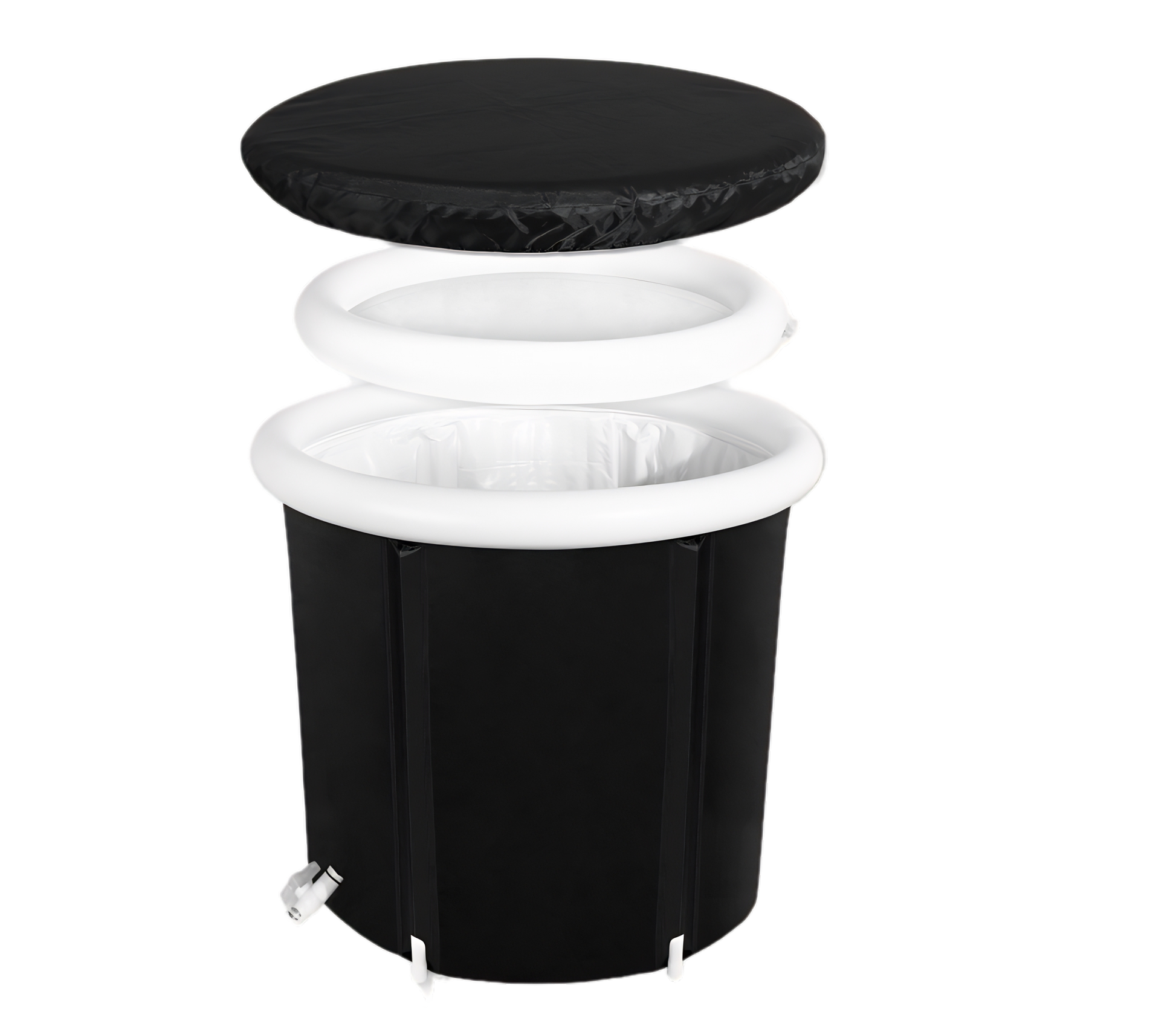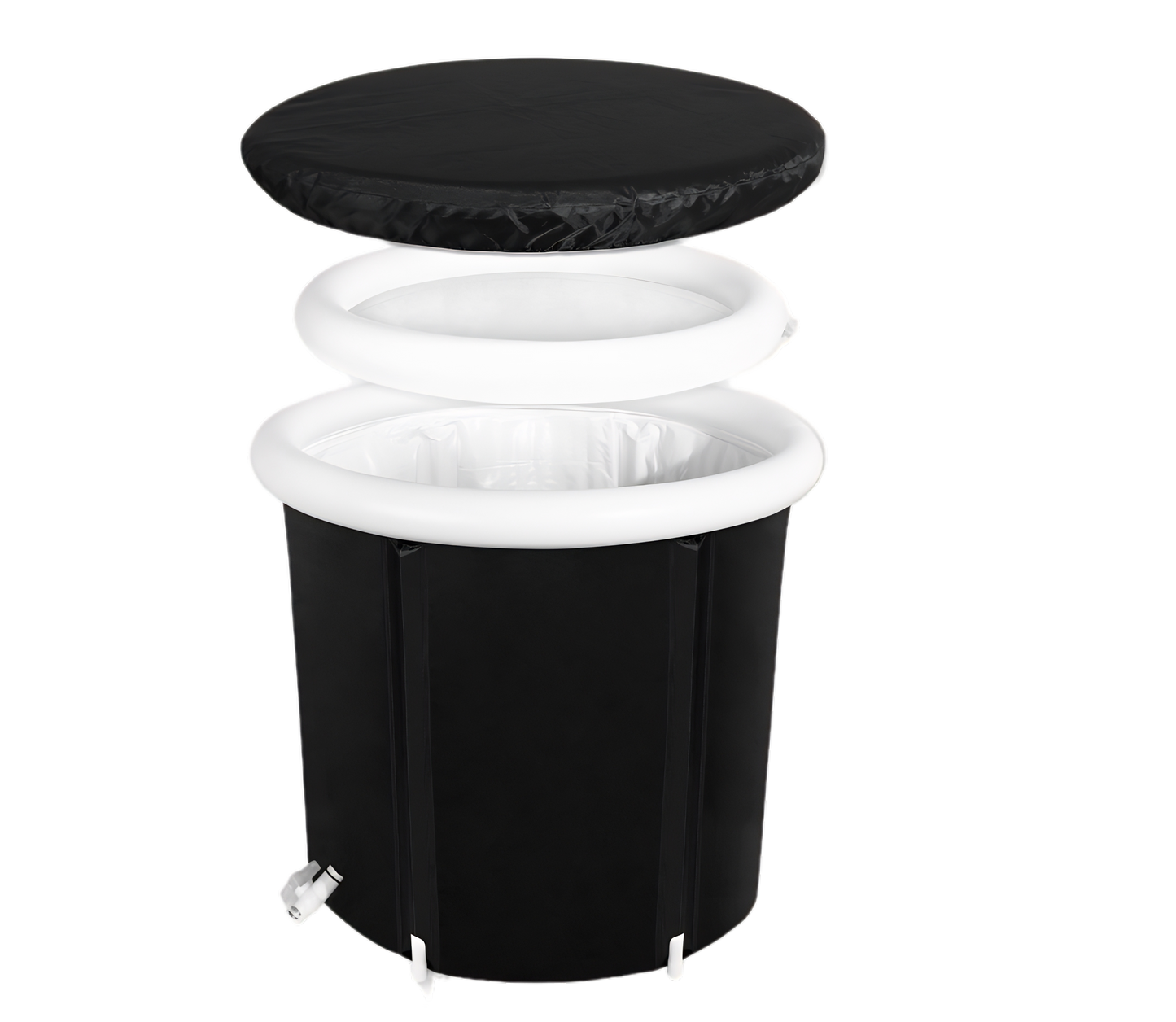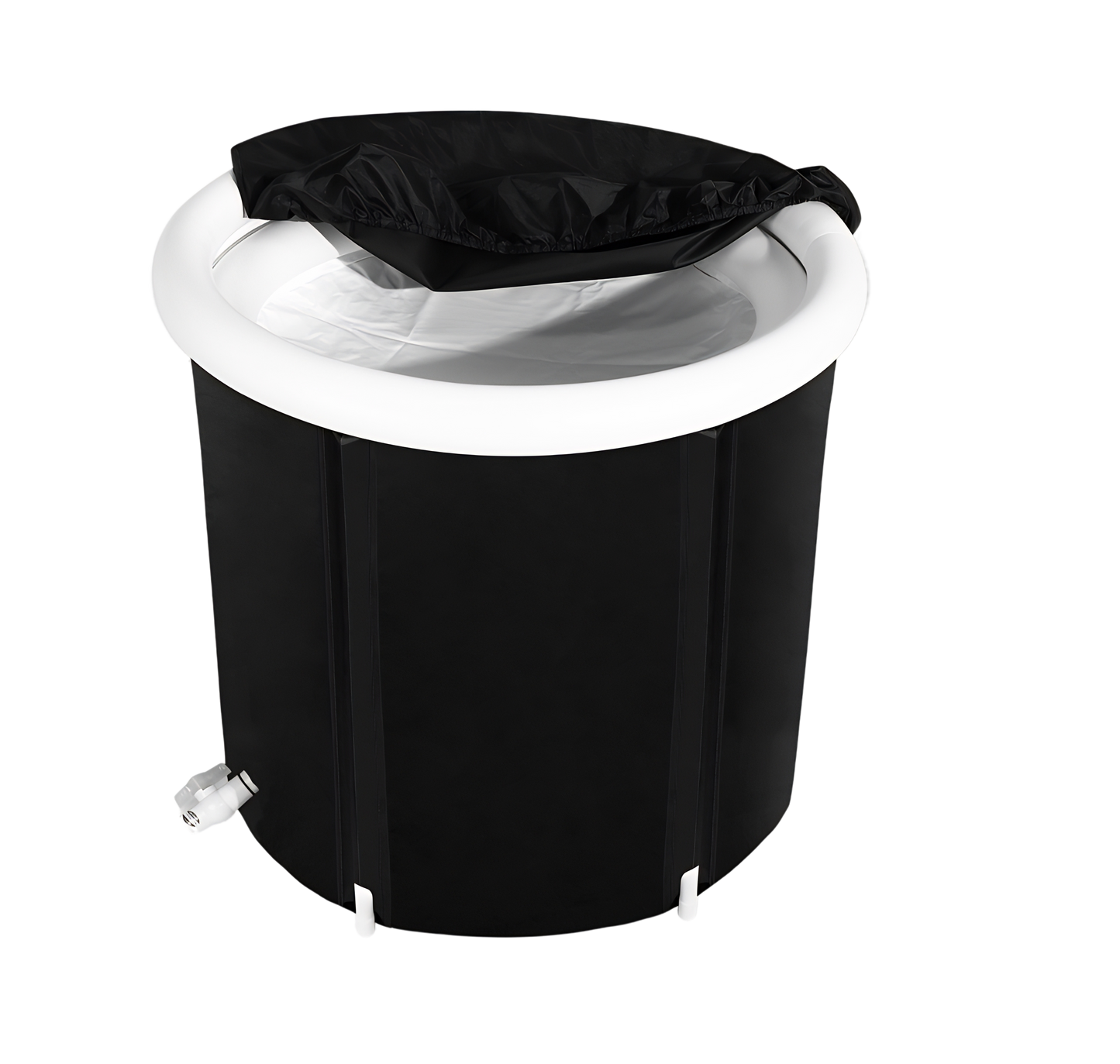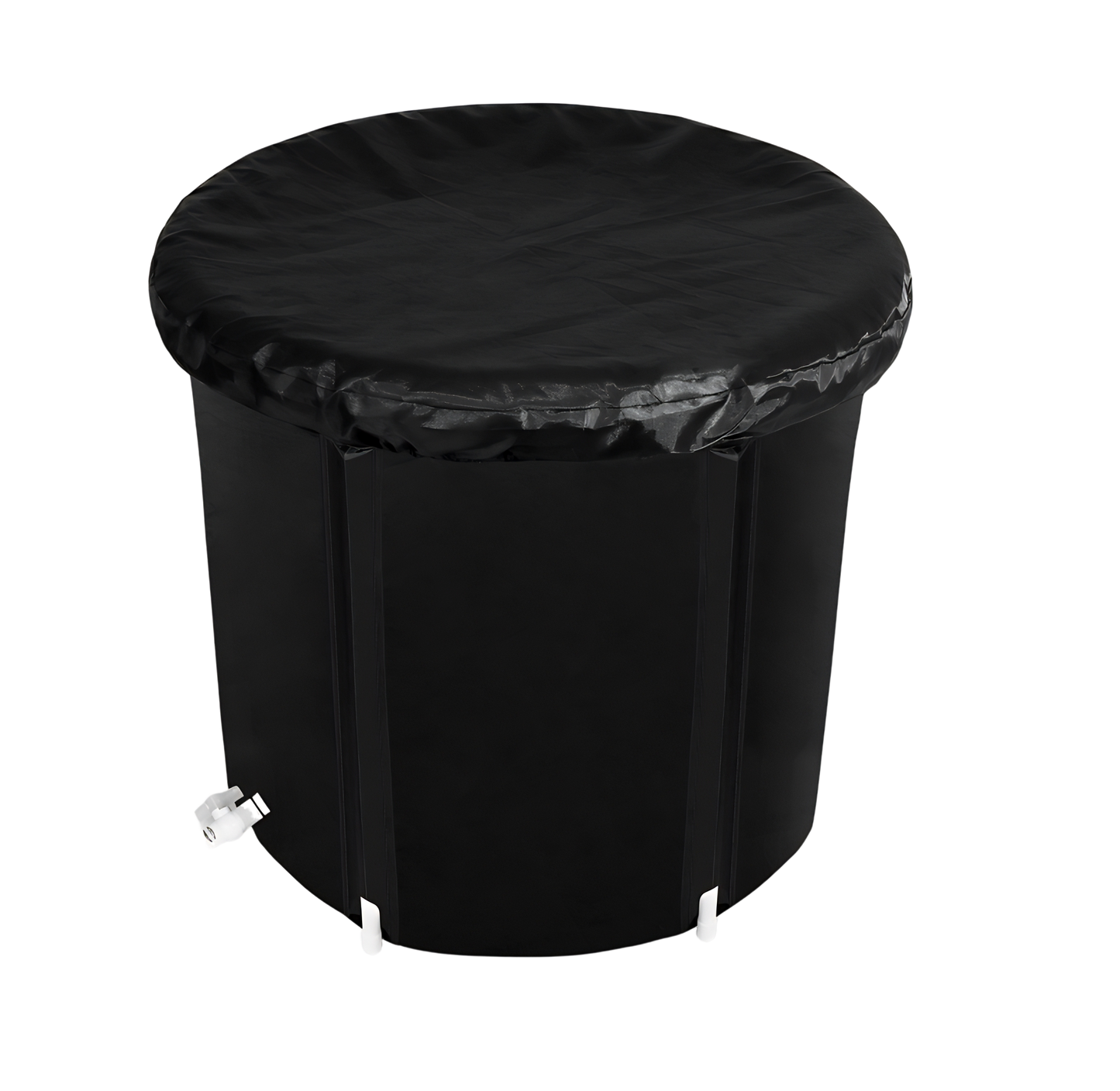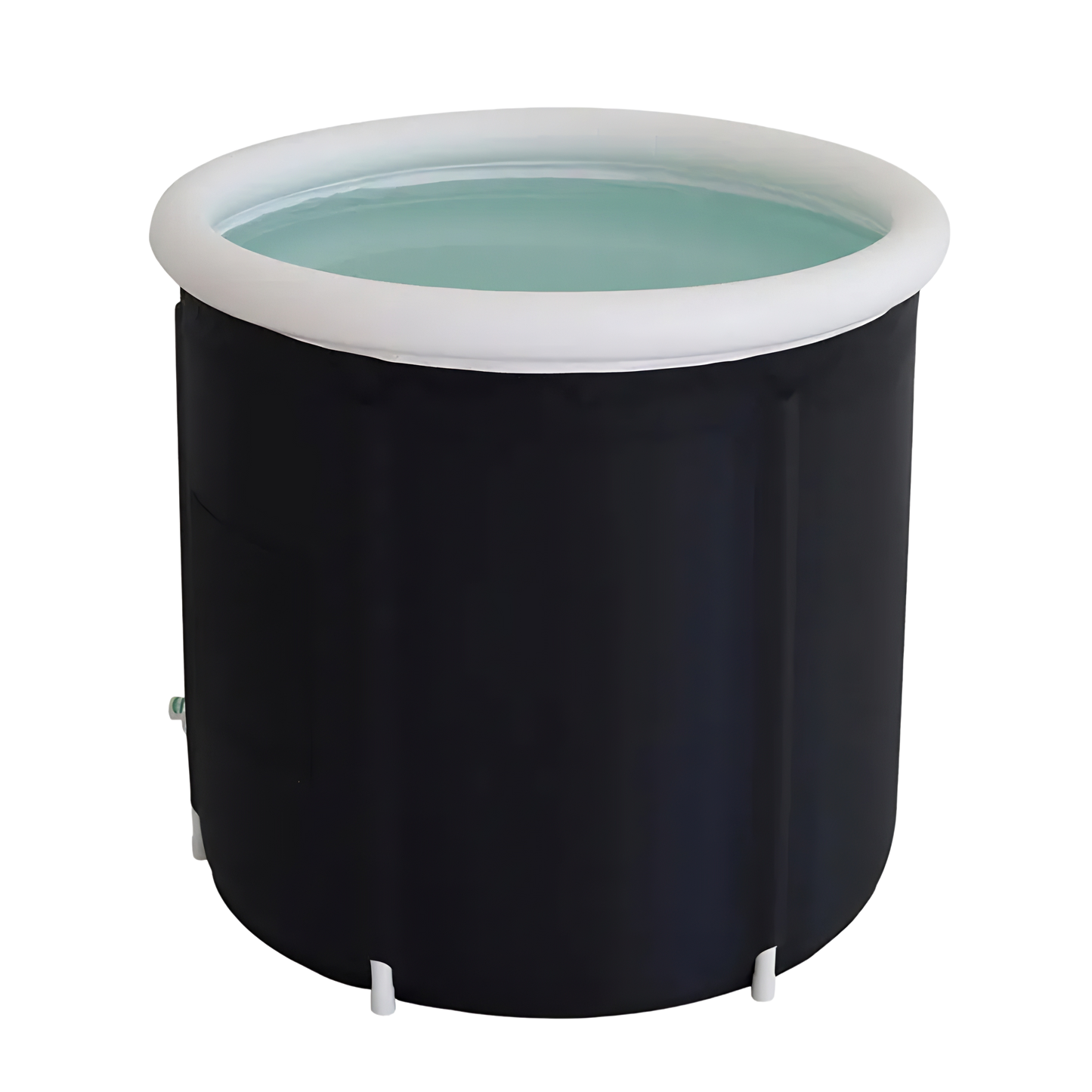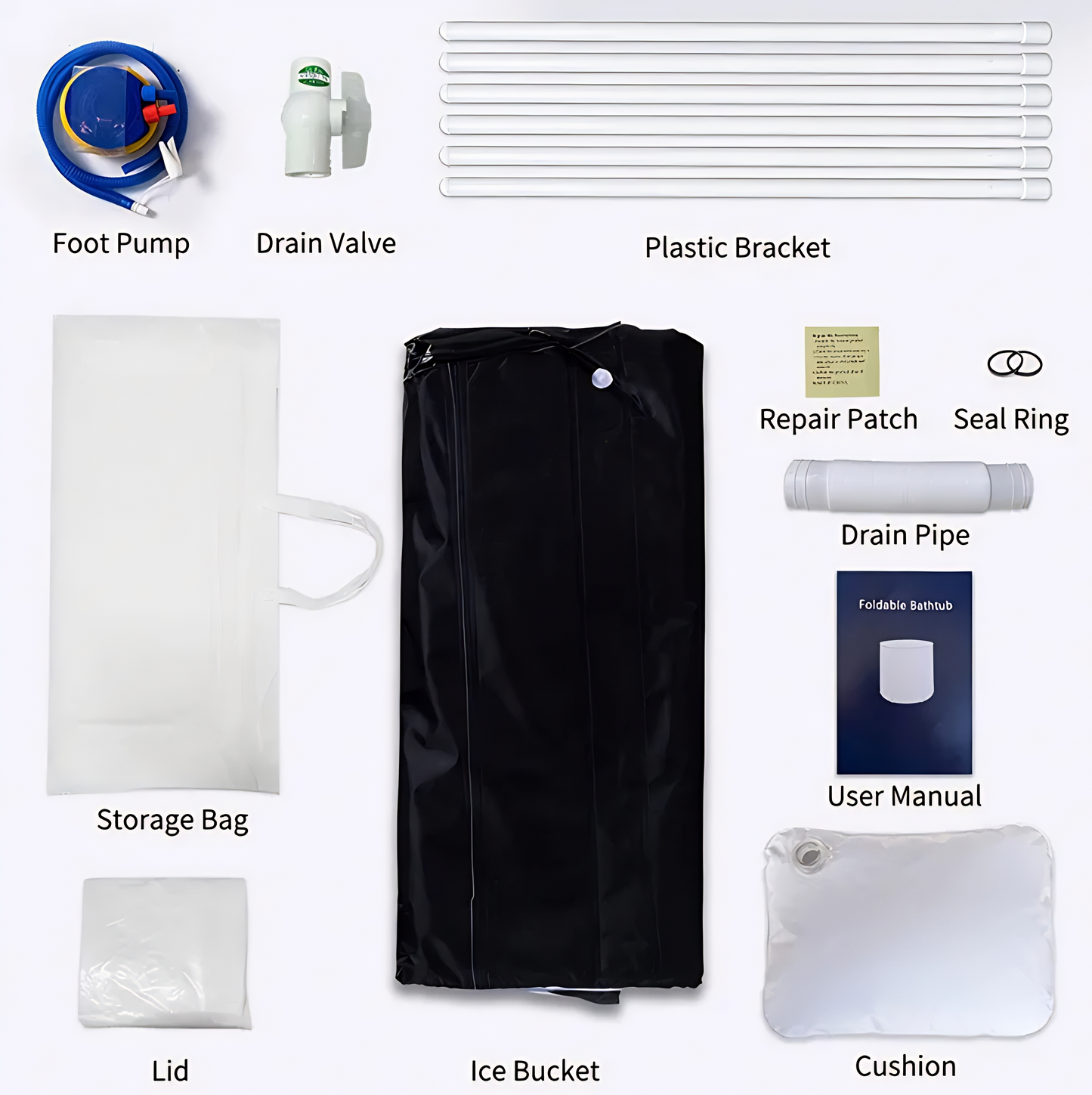Key Takeaways
- Anxiety is a growing concern, with over 1 in 5 Australians aged 16–85 experiencing a mental disorder in the past year.
- Regular ice bath practice can help reduce anxiety.
- A holistic approach involving diet, exercise, and meditation, is the most efficacious mean of reducing anxiety levels.
Bathing For Peace
Anxiety, a once-underestimated mental health concern, has now become a global epidemic. The Australian Bureau of Statistics reveals that over 1 in 5 Australians aged 16–85 have experienced a mental disorder in the past year, with anxiety disorders being a significant contributor (Australian Bureau of Statistics, 2022). This sentiment is echoed by the Australian Institute of Health and Welfare, which states that nearly 1 in 7 children and adolescents aged 4–17 years have experienced a mental illness in the previous 12 months (Australian Institute of Health and Welfare, 2023).
Parallel to this, the ancient practice of ice baths, once limited to athletes, is witnessing a renaissance. Beyond the realm of physical recovery, ice baths are now being explored for their potential mental health benefits. With the increasing prevalence of anxiety, could the cold embrace of an ice bath offer a therapeutic solution?
In this blog, we'll bridge the chilling waters of ice baths with the heated issue of anxiety's global rise, offering insights into their potential synergy.
Can Ice Baths Really Help Alleviate Anxiety?
In a world where anxiety levels are on the rise (World Health Organization, 2022), the quest for effective remedies has led many to explore unconventional avenues. Among these, the practice of cold water immersion, particularly ice baths, has garnered significant attention.
Ice baths, traditionally associated with athletic recovery, have recently found their way into the wellness spotlight. Their potential benefits are not just limited to physical rejuvenation; there's a growing curiosity about their impact on mental well-being.
The sensation of submerging oneself in cold water is undeniably intense. This intensity, for many, acts as a reset button, momentarily pulling them away from the stresses of daily life. It's a practice that demands presence, grounding individuals in the here and now.
Moreover, the global wellness community is buzzing with testimonials. Many individuals swear by the mental clarity and reduced anxiety levels they experience post-immersion. While the exact mechanisms remain a topic of research, the anecdotal evidence is compelling.
As the popularity of ice baths continues to rise, their potential role in anxiety management becomes a fascinating subject. Could this age-old practice offer modern-day relief from anxiety? The exploration of this intersection between cold water immersion and mental health is both timely and relevant.
How Do Ice Baths Help Anxiety?
The therapeutic potential of ice baths in the realm of mental well-being is a topic that's gaining significant traction. As more individuals seek holistic approaches to manage anxiety, the question arises: do ice baths help anxiety? Let's explore the underlying mechanisms:
- The Vagus Nerve: One of the primary nerves connecting the brain to various parts of the body, the vagus nerve plays a pivotal role in regulating our stress response. Cold water immersion stimulates this nerve, potentially promoting relaxation and reducing anxiety symptoms.
- Hormonal Balance: Exposure to cold water can trigger the release of certain hormones, including endorphins and norepinephrine. These hormones are known to elevate mood and counteract feelings of anxiety, offering a natural mood boost (Kelly & Bird, 2021).
- Anti-inflammatory Properties: Chronic inflammation has been linked to increased anxiety levels. Cold water immersion has anti-inflammatory effects, which might indirectly contribute to reduced anxiety.
- Sensory Input: The immediate sensation of cold acts as a powerful sensory input, grounding individuals in the present moment. This unintentional mindfulness can serve as a distraction from ruminative or anxious thoughts.
- Stress Resilience: Regularly exposing oneself to the controlled stress of cold water can train the body and mind to handle stress more effectively, potentially building resilience against anxiety (Espeland, de Weerd & Mercer, 2022).
- Reduced Panic Attacks: Some individuals have reported that cold water immersion helps in reducing the frequency and intensity of panic attacks, though more research is needed in this area.
- Feelings of Accomplishment: Successfully enduring the challenge of an ice bath can instill a sense of achievement. This boost in self-efficacy can combat feelings of helplessness often associated with anxiety.
To read more about the effects ice baths have on mental health, check out our detailed article: Ice Baths for Mental Health.
Can Ice Baths Be Harmful?
While ice baths are celebrated for their recovery benefits, especially among athletes, they come with challenges. Immersing in cold water can be a jarring experience, often deterring individuals from making it a regular practice. There's also the risk of hypothermia, particularly for those with low body fat or those not acclimated to cold. Additionally, while ice baths are known for reducing inflammation, their effect on muscle recovery remains debated. Some suggest that cold might hinder nutrient flow to muscles. It's also worth noting that ice baths aren't suitable for everyone, especially those with certain health conditions. As always, consulting a healthcare provider before diving into ice baths is essential.
If you would like to read more about the potential risks of ice baths, check out our more detailed article: Disadvantages of Ice Baths.
Addressing Anxiety in Modern Society
In today's fast-paced world, anxiety has become alarmingly widespread. At Aussie Ice Baths, we attribute this surge in anxiety to our evolving societal and cultural lifestyles. Several factors contribute to this mental health challenge, and understanding them can pave the way for effective solutions.
Dietary Impact on Mental Health

We are all too familiar with the effects eating poor food can have on our physical body. From our appearance to our body's overall health. But did you ever stop and think about the impacts the foods you eat might have on your mental health? One of the primary culprits exacerbating anxiety is our modern diet. Foods packed with preservatives, artificial colors, flavors, fried foods, packaged and processed foods, can have detrimental effects on our mental well-being. Transitioning to a diet rich in natural, wholesome foods can significantly mitigate anxiety symptoms.
But don't just take our word, or anyone's for that matter on it. It's always best to see these things for yourself. Just try a little experiment: for the first week, commit to a clean diet consisting solely of whole foods. This includes fresh vegetables, fruits, nuts, grains, rice, and if you prefer, meats. Ensure that everything you consume is free from artificial additives – this means avoiding sauces, dressings, or any processed items.
Then, for the following week, switch gears entirely. Indulge in foods that are predominantly artificial and processed: ice cream, chocolates, pizzas, fried items, sauces, and the like.
At the end of these two weeks, reflect on the differences you felt between the two phases. Assess your mental state, energy levels, quality of thoughts, and overall motivation. I think you will be very surprised to see just how big of an impact the foods you eat can have on your mental health..
The Role of Physical Activity

Our bodies produce energy corresponding to the food we consume. When this energy isn't expended through physical activity, it often manifests as mental restlessness, including anxiety. Consider the tranquility one feels after an exhaustive hike; such physical exertion can be a natural antidote to stress. Incorporating regular physical activity into our routines can be a game-changer for mental health.
Meditation: Gym for the Mind

Anxiety, at its core, is a mental challenge. Just as we exercise our bodies to maintain physical health, our minds too require regular workouts. Meditation serves as a mental gym, strengthening our emotional and cognitive faculties. Regular meditation fortifies the mind against anxiety and other mental disturbances. Drawing from personal experience, consistent meditation has been instrumental in reducing anxiety levels.
A Holistic Approach

Combining these lifestyle adjustments with the therapeutic power of ice baths offers a comprehensive approach to combat anxiety. Embracing a balanced diet, regular physical activity, meditation, and ice baths can pave the way for a more centered and tranquil mind.
Closing Thoughts
In a world where mental well-being is often overshadowed by the hustle and bustle of daily life, it's crucial to find holistic approaches to combat challenges like anxiety. Ice baths, coupled with a balanced diet, regular physical activity, and mindfulness practices like meditation, offer a promising avenue for those seeking tranquility. While the cold embrace of an ice bath might not be a universal solution, its potential benefits, when integrated into a broader wellness strategy, can pave the way for a calmer, more centered existence. Embrace the cold, nourish the body, and fortify the mind – the path to mental serenity might be simpler than we think.
References
- Australian Bureau of Statistics. (2022). National Study of Mental Health and Wellbeing. Available at: Link. Accessed on 22/10/2023.
- Australian Institute of Health and Welfare. (2023). Prevalence and impact of mental illness. Available at: Link. Accessed on 22/10/2023.
- World Health Organization. (2022, March 2). COVID-19 pandemic triggers 25% increase in prevalence of anxiety and depression worldwide. [Press release]. Retrieved from https://www.who.int/news/item/02-03-2022-covid-19-pandemic-triggers-25-increase-in-prevalence-of-anxiety-and-depression-worldwide
- Kelly, J.S. & Bird, E. (2021) 'Improved mood following a single immersion in cold water', Lifestyle Medicine, 3(1), [Online]. Available at: https://onlinelibrary.wiley.com/doi/full/10.1002/lim2.53 (Accessed: 25/10/2023).
- Espeland, D., de Weerd, L., & Mercer, J.B. (2022) 'Health effects of voluntary exposure to cold water – a continuing subject of debate', Int J Circumpolar Health, 81(1), [Online]. Available at: https://www.ncbi.nlm.nih.gov/pmc/articles/PMC9518606/ (Accessed: 25/10/2023).

